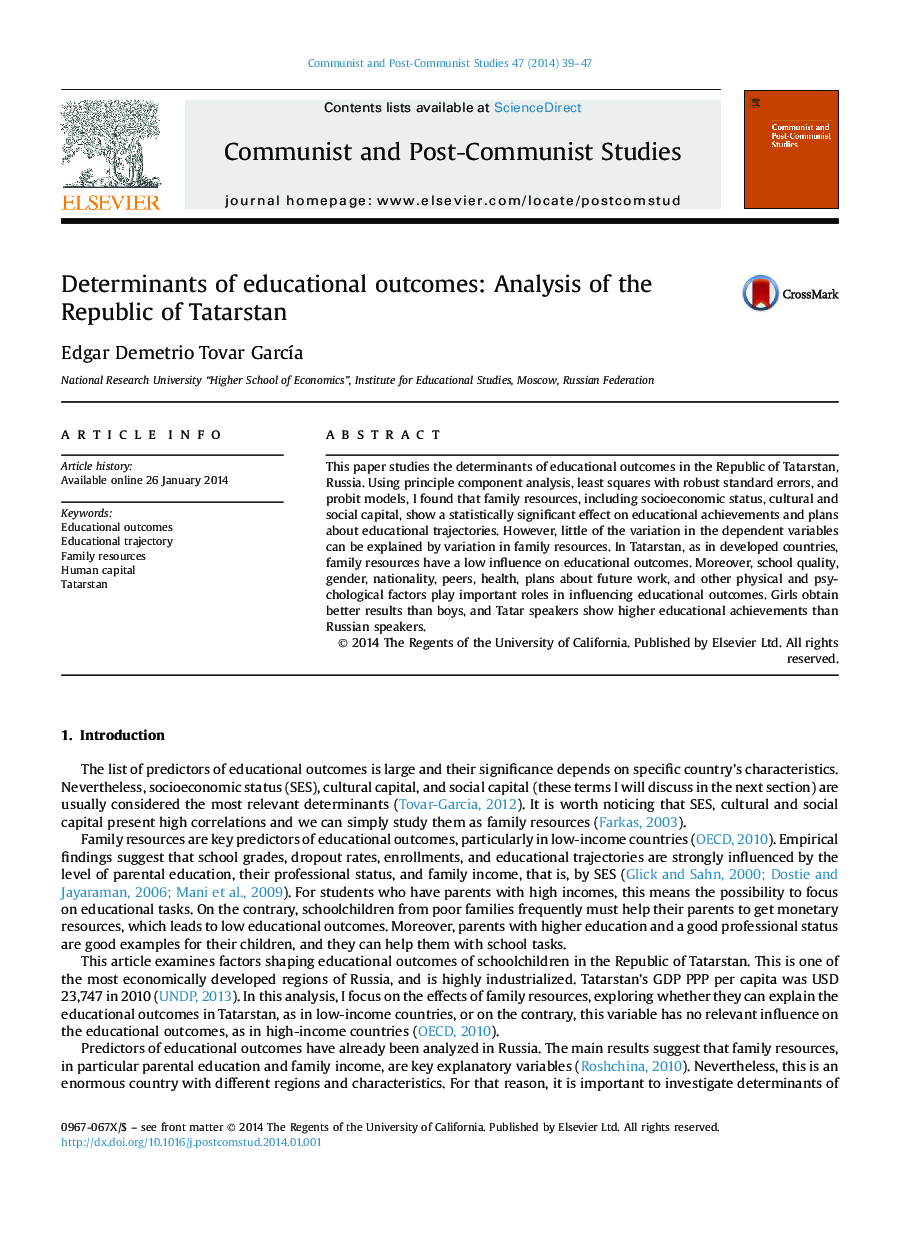| Article ID | Journal | Published Year | Pages | File Type |
|---|---|---|---|---|
| 1046497 | Communist and Post-Communist Studies | 2014 | 9 Pages |
Abstract
This paper studies the determinants of educational outcomes in the Republic of Tatarstan, Russia. Using principle component analysis, least squares with robust standard errors, and probit models, I found that family resources, including socioeconomic status, cultural and social capital, show a statistically significant effect on educational achievements and plans about educational trajectories. However, little of the variation in the dependent variables can be explained by variation in family resources. In Tatarstan, as in developed countries, family resources have a low influence on educational outcomes. Moreover, school quality, gender, nationality, peers, health, plans about future work, and other physical and psychological factors play important roles in influencing educational outcomes. Girls obtain better results than boys, and Tatar speakers show higher educational achievements than Russian speakers.
Related Topics
Social Sciences and Humanities
Social Sciences
Development
Authors
Edgar Demetrio Tovar GarcÃa,
